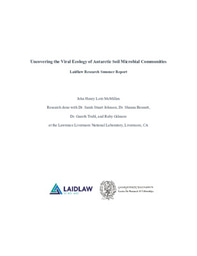LiA Week 6: Sustained Commitment
While almost a week has passed since I flew home from Peru, I have maintained my connection to the Amazon. My immersion in a new culture and way of life in the Amazon stuck with me as I continued on back home, as it became harder to take for granted the clean water, diversity of food options, hot showers, and mosquito-free bed rooms that were not a given in Loreto. Instead of taking for granted the lower levels of my Maslow's hierarchy, I've gotten much better at appreciating the access to basic wellbeing that I have in my life. Reflecting on my LiA in Peru also gave me time to be grateful for the diversity of environments and perspectives I've had the privilege to experience in my life so far.
With the goal of hopefully paying forward some of my time in Sucusari and to stay engaged, I've begun working on a research paper reviewing the socio-cultural systems and norms of the Maijuna and how they are conducive to the sustainability of their hunting practices. Witnessing the conservation ethic of the Maijuna hunters firsthand has made this project much more meaningful; real-world knowledge guides me as I comb through academic papers that lay out statistics on mammal populations and the plethora of cultural practices that inform interactions with ecosystems in the Amazon. Publishing this paper will contribute to the Maijunas' goal of acquiring a Sustainable Management Plan from the regional government, as an unjust structuring of the law requires indigenous communities to have published scientific data before they are able to legally sell the wildlife that they manage (despite the level of poverty in these communities and the insurmountable financial barriers to achieving this requirement independently).
Working on this project has also helped me further reflect on the power of connecting science with local knowledge. While the Maijuna lack any formal, western education or scientific training, the lessons and traditions they inherit over generations, and their experience working hands-on in the jungle from a young age, can be a much more powerful classroom. When we were in the rainforest, we were completely dependent on the knowledge of the Maijuna to traverse the environment safely and to successfully interpret the ecological signals all around us. But at the same time, the scientific analyses and techniques that we bring can help the Maijuna learn more about their forests from a new perspective, and to model their management practices to convince the world of their sustainability. One of the most rewarding parts of the expedition was to see how engaged many of the hunters were in learning how to use the camera traps and seeing their hard work come to fruition as we harvested the video data of jaguars and peccaries and tapirs. Ultimately, for the Maijuna, when it comes to this project, what matters most to them is ensuring the preservation of their culture and ancestral lands, and for their families and future generations to be healthy and secure. As I discern what paths I want to commit myself to in my life, these pure intentions ground me and guide me.


Please sign in
If you are a registered user on Laidlaw Scholars Network, please sign in